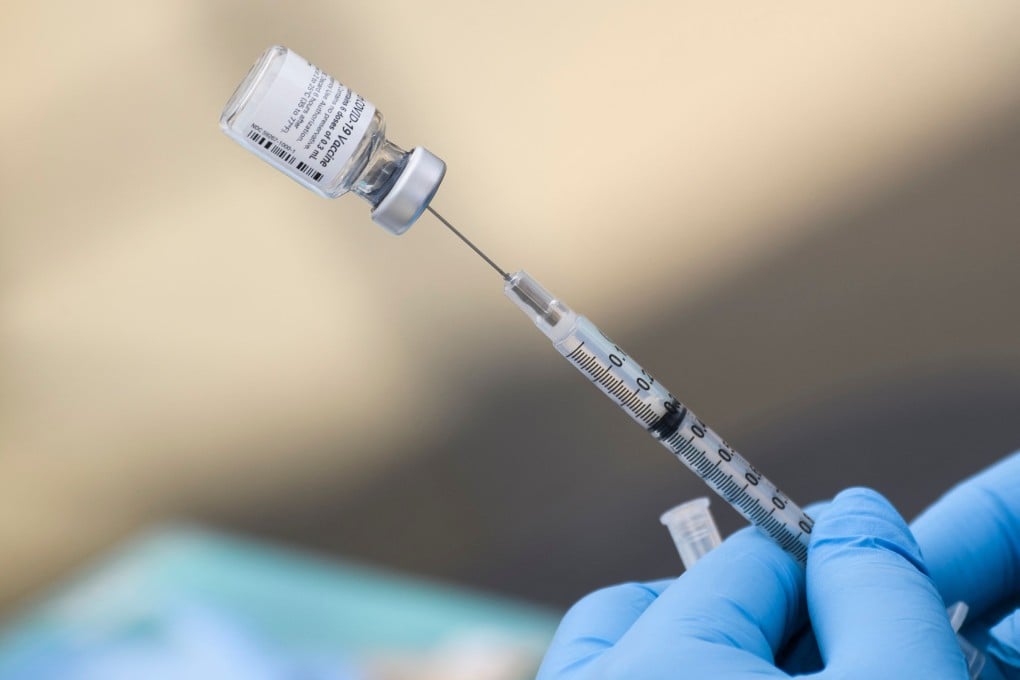Pfizer-BioNTech study shows Covid-19 vaccine efficacy wanes over 6 months
- While protection was still high, researchers found it declined by 13 percentage points in the period
- They didn’t recommend booster shots but noted clinical trials are under way on safety and effectiveness of a third jab

More than 46,000 people in the United States, Turkey, Brazil, Argentina, South Africa and Germany were monitored for the study, which has not been peer-reviewed. Some 2,306 of the participants were aged between 12 and 15, while the rest were 16 or older. The median age was 51.
“Efficacy peaked at 96.2 per cent during the interval from seven days to two months post-dose two, and declined gradually to 83.7 per cent from four months post-dose two to the data cut-off – an average decline of 6 per cent every two months,” the authors – most of whom work for either Pfizer or BioNTech – wrote in the paper posted on preprint server medRxiv.org on July 28.
“Ongoing follow-up is needed to understand persistence of the vaccine effect over time, the need for booster dosing, and timing of such a dose,” they said.
Several vaccine makers are looking at whether extra doses for those who have been immunised are needed. It comes as countries around the world battle the highly infectious Delta strain, and those with high vaccination rates such as Israel have begun administering booster shots to protect against Delta and other new variants of the coronavirus.